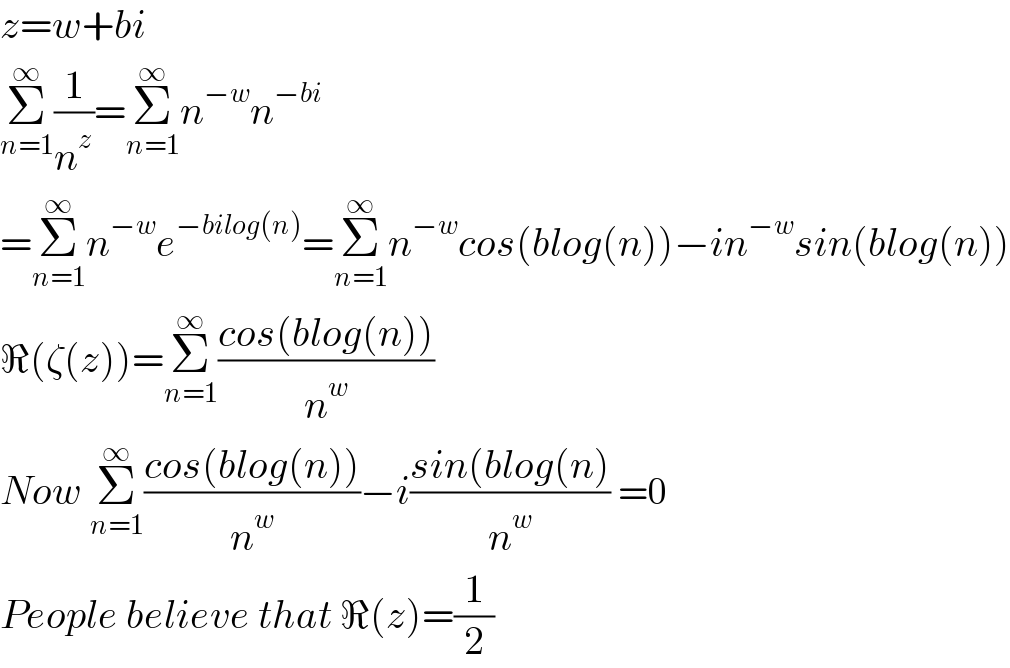
Question and Answers Forum
Question Number 142725 by mathlove last updated on 04/Jun/21

Commented by Olaf_Thorendsen last updated on 04/Jun/21

Commented by MJS_new last updated on 04/Jun/21

Commented by 1549442205PVT last updated on 05/Jun/21
![This equation is too easy! x^4 −8x^3 +2x^2 +8x+1=0 ⇔(x^2 +(1/x^2 ))−8(x−(1/x))+2=0.put (x−(1/x))=t we get t^2 +2−8t+2=0⇔t^2 −8t+4=0 Δ′=12=(2(√3))^2 ⇒t=4±2(√3) i)x−(1/x)=4+2(√3) ⇔x^2 −(4+2(√3))x−1=0 Δ′=(2+(√3))^2 +1=8+4(√3)=[(√2)((√3)+1)]^2 x=2+(√3)±((√6)+(√2)) ii)x−(1/x)=4−2(√3)⇔x^2 −2(2−(√3))x−1=0 Δ′=(2−(√3))^2 +1=8−4(√3)=((√6)−(√2))^2 x=2−(√3)±((√6)−(√2))](Q142750.png)
Commented by MJS_new last updated on 05/Jun/21

Commented by Dwaipayan Shikari last updated on 05/Jun/21

Commented by MJS_new last updated on 05/Jun/21

Commented by Tawa11 last updated on 06/Nov/21

Answered by Dwaipayan Shikari last updated on 05/Jun/21

Commented by MJS_new last updated on 04/Jun/21

